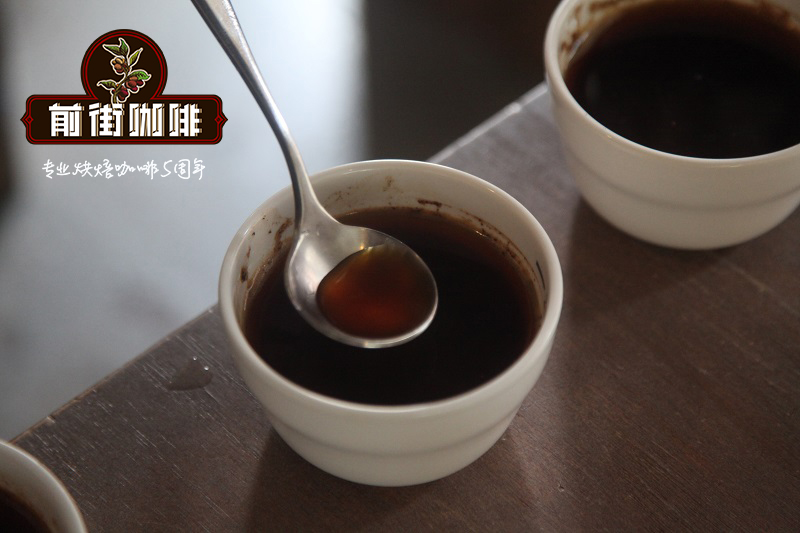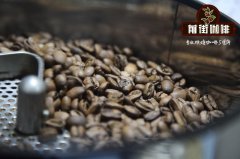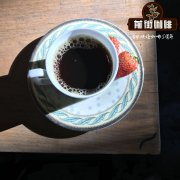Coffee cultivation in the Yungas Jungles region of the Andes, Bolivia.

Professional coffee knowledge exchange more coffee bean information please follow the coffee workshop (Wechat official account cafe_style)
Located in the La Paz,100 kilometer of La Paz, Bolivia, the Yungas coffee growing area is rich in volcanic soil and rich in clean water. From 1.900 meters to 3.000 meters above sea level, S A. Agro Takesi Estate Coffee Manor, with a total area of 2.500 hectares, has a coffee planting area of about 200 hectares, other crops, coffee, apples and orchids share an area of 600 hectares, and the other 1.900 hectares are preserved as natural forests. To maintain Tarms's special climate and foggy environment, high-quality volcanic soil and moisture are the best conditions for coffee trees to grow, unique ecological geology contains hydrogen and organic volcanic soil, covering the surface of coffee-growing land, as well as annual rainfall of 2.000 to 2.500 mm, relative humidity of 70% and average temperature of 15 degrees Celsius to 20 degrees Celsius, coffee-growing areas continue to improve shade trees. It can promote the maturity of coffee fruit to be fuller, and the sugar content can reduce the bitterness and sour taste of coffee, so that coffee beans can reach the highest quality. Coffee fruit must grow to be as mature as a red cherry. The peel is picked and crushed by hand for three-stage water washing and fermentation, followed by large screen ventilation and natural drying, and when the weather is bad, the machine is used to bake at low temperature. The medium roasting of Cyti+ Roaster city sets off the highest state of Jungus Yungas gourmet coffee in the Andes.
Attributes: slightly sweet expensive grape spirits, honey blackcurrant pulp aromas, and low-sugar chocolate-like mellow, taste as sweet as ripe fruit
、
Introduction: Bolivia Jungus coffee growing area, from 1.900 meters to 2.400 meters above sea level Takesi Estate Coffee Manor is the highest coffee plantation in the world, the Royal Mururata Mountains in the Andes, the Takesi River Valley, a small number of early Incas living footprints, Takesi rivers are royal mountains, snow melted snow water has become a rich and clear water source of the Takesi River. It is a natural resource for irrigation of agricultural products and washing treatment of organic coffee in river valleys. Due to clouds and fog in high mountain areas and stable heat and solar radiation, it affects the light and function of plants. Natural organic volcanic soil promotes the growth of crops and coffee trees, reaching the highest quality from flowering to harvest. The coffee harvested in November is the best quality, and coffee beans are full red ripe and mellow.
Origin: South America.
Country: Bolivia Bolivia.
Region: Yongos Yungas, Andes.
City: Yanacahi, La Paz, La Paz.
Mark: s A. Agro Takesi Estate Manor in the Royal Mountains.
Owner: Mauricio,Ramiro de Medina.
Manor: a total area of 2.500 hectares.
Planting: coffee covers an area of 200 hectares.
Grade: S H G 18 screen.
Rainfall: the average annual rainfall in the manor area is 1800-2500 mm.
Temperature: the average temperature in the manor area is 15 degrees Celsius C 59 degrees Fahrenheit.
Humidity: the average annual humidity in the manor area is 70%.
Altitude: the estate is 2.100 meters above sea level.
Harvest: the initial harvest is complete from November to February of the following year.
Treatment: picking spring water by hand, washing three stages of fermentation, followed by screen ventilation and natural drying, or machine low temperature drying.
Species: Tibica Typica
Baking: City+ Rosater, Probat L12 Rosater city medium baking.
END
Important Notice :
前街咖啡 FrontStreet Coffee has moved to new addredd:
FrontStreet Coffee Address: 315,Donghua East Road,GuangZhou
Tel:020 38364473
- Prev

The tallest coffee farm in the world-the Takesi Tower in Bolivia introduces the iron pickup coffee beans to the Xi Manor.
Professional coffee knowledge exchange more coffee bean information please follow the coffee workshop (Wechat official account cafe_style) Bolivia's Finca Takesi is the world's highest coffee farm, located on a mountain of 2450 meters above sea level, 40% of the coffee seedlings fail to grow every year because they are too high and too cold. Compared with other coffee farmers, it takes them an average of one and a half years to get there.
- Next

Kaddura Farm Solar Coffee from Estrina Farm, Bolivia _ rare Coffee Bean species in Uganda
Professional coffee knowledge exchange more coffee bean information please follow coffee workshop (Wechat official account cafe_style) Bolivia is a landlocked country, about 1/3 of the territory is the Andes, the terrain is rugged, the elevation is very high. La Paz is known as the capital with the highest elevation in the world. Although there is no beautiful tropical seaside scenery, but the lake scenery and the Andes
Related
- Detailed explanation of Jadeite planting Land in Panamanian Jadeite Manor introduction to the grading system of Jadeite competitive bidding, Red bid, Green bid and Rose Summer
- Story of Coffee planting in Brenka region of Costa Rica Stonehenge Manor anaerobic heavy honey treatment of flavor mouth
- What's on the barrel of Blue Mountain Coffee beans?
- Can American coffee also pull flowers? How to use hot American style to pull out a good-looking pattern?
- Can you make a cold extract with coffee beans? What is the right proportion for cold-extracted coffee formula?
- Indonesian PWN Gold Mandrine Coffee Origin Features Flavor How to Chong? Mandolin coffee is American.
- A brief introduction to the flavor characteristics of Brazilian yellow bourbon coffee beans
- What is the effect of different water quality on the flavor of cold-extracted coffee? What kind of water is best for brewing coffee?
- Why do you think of Rose Summer whenever you mention Panamanian coffee?
- Introduction to the characteristics of authentic blue mountain coffee bean producing areas? What is the CIB Coffee Authority in Jamaica?

